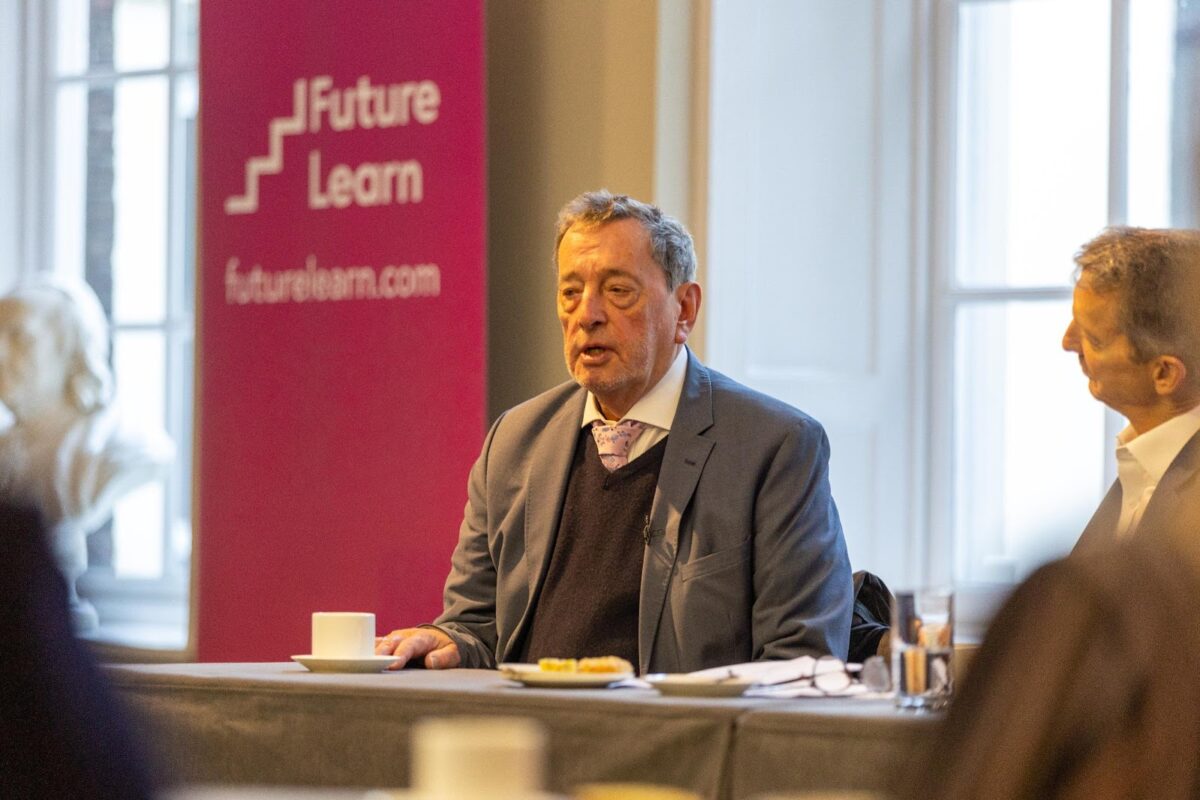‘SKILLS, SKILLS, SKILLS’ SHOULD BE PRIORITY FOR NEXT GOVERNMENT, SAYS LORD BLUNKETT

Addressing the growing skills crisis should be top of the agenda for any incoming Government, says former Education Secretary Lord David Blunkett.
Speaking during a panel session on the 30th November, hosted at the Royal Society of Arts and sponsored by FutureLearn, Lord Blunkett gave his thoughts on the current landscape of skills and education investment in the UK:
“You’ve got to ask, what are we doing wrong in the direction of the money that we are spending, public and private? And what more could we do with different forms of learning, different ways of reaching people and giving people some understanding of how crucial [learning] is.
He then highlighted his own experience in Government under former Prime Minister Tony Blair:
“I was fortunate because the Prime Minister said education, education, education when he gave me the job in 1997. I’d like the present Prime Minister and the future one to be able to say skills, skills, skills – and to really mean it”.
Lord Blunkett was joined on the day by a panel of experts in skills and education, including former Chief Economist of the Bank of England and current Royal Society of Arts CEO Andy Haldane, CEO of City & Guilds Kirstie Donnelly, and former Universities Minister and current Chairman of FutureLearn, Rt. Hon. Jo Johnson.
The skills gap, or, in other words, the mismatch between the skills possessed by the workforce and those demanded by employers, is a pressing issue for policymakers.
It is estimated to cost the country £120 billion by 2030, says the Learning and Work Institute. There will be a shortfall of 2.5 million highly skilled workers and an oversupply of more than eight million people with low skills by this time. According to the Open University, employers’ costs due to the skills shortages have increased by over £6 billion a year.
Lord Jo Johnson, FutureLearn’s Chairman, said:
“Lord Blunkett is absolutely correct in his assessment. Productivity and skills development form the backbone of the economy and we cannot allow the current skills gap in the UK to grow any wider.
We at FutureLearn believe in the transformative power of online education in breaking down barriers to accessing crucial knowledge and skills. That is why we are proud to partner with some of the world’s top-ranked educational institutions to upskill and reskill learners to thrive in new and developing industries.”
Jessie Buscombe, who attended the event on behalf of WorldSkillsUK, said:
“Future Learn delivered a really engaging and timely event, bringing together an expert panel to discuss how critical skills are to addressing long term issues of productivity in the UK economy.
Discussions like these are critical because- as the panel highlighted- we can’t make progress with a whole range of policies for growth without ensuring that the skills challenge is addressed.”
For more information on FutureLearn, please visit www.futurelearn.com.











Responses